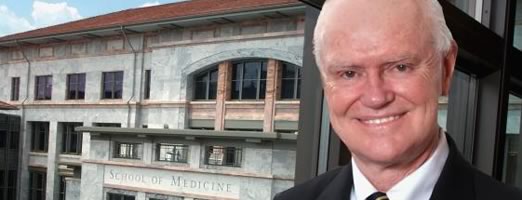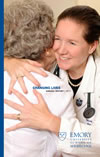Changing Lives and Being Changed in the Process

Graduates in the medical school’s class of 2011 were pioneers of sorts, arriving at Emory four years ago as the first students to occupy a new state-of-the-art medical education building and to embark on the school’s new curriculum.
This curriculum incorporates numerous and exciting innovations, reorganizing the way material is presented, exposing students early and often to patients, and continually evolving by incorporating feedback from students and faculty. But perhaps its most revolutionary and powerful feature is a throwback to a simple, old-fashioned idea—that students need exposure to good role models to learn how to be good at what they do and, conversely, that interaction with students is key to help faculty become the best role models they can be.
It’s the 2011 version of the old apprentice system for learning medicine, with the teachers benefiting as much as the learners.
Our faculty have never invested more heart, creativity, or—most important—time in their interaction with students, whether one-on-one or in teams, whether in the classroom, hospital ward, or clinic. And they have never found students to be more of a constant source of joy and inspiration.
|
Directed at high-schoolers below the poverty line, Project Pipeline exposes students to rigorous college-level research to foster interest in the sciences. |
|
Examples include Bridget Spelke and Joelle Rosser, who started a twice-a-month free women’s clinic at the Open Door Community; Sarah Rae Strunk, who spent her five-month Discovery Phase in Rwanda teaching nurses how to provide contraceptive services; Mina Tran, who led a group of students to Saigon to help and learn at an extremely crowded children’s hospital; and Zwade Marshall and Sam Funt, who founded Project Pipeline to interest underprivileged high school students in science careers.
Together, faculty and students are changing others’ lives and finding their own being changed in the process.
Thomas J. Lawley, MD, Dean
Emory University School of Medicine

